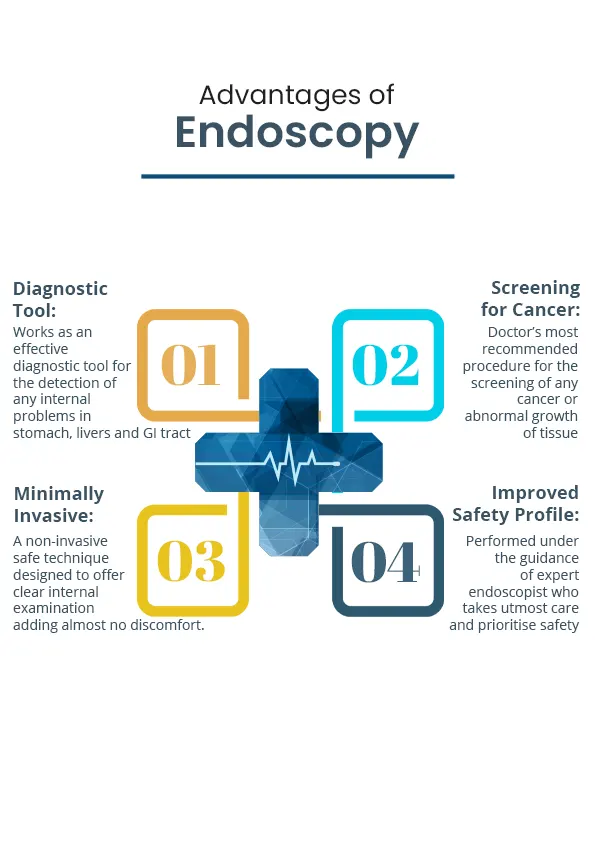Endoscopic Intervention
What Is Endoscopy?
Endoscopy is an important medical procedure which helps a healthcare professional in their diagnosing, treatment and monitoring of any existing gastrointestinal conditions. This minimally invasive procedure helps in the precise visualization of the internal GI tract which ensures targeted intervention and required shorter recovery span.
Why Endoscopy is Performed?
- Effective Diagnostic Tool: Endoscopy is an effective diagnostic tool for identifying different gastrointestinal conditions, and finding causes of symptoms including abdominal pain, difficulty swallowing, bleeding, and unexplained weight loss.
- Accurate Visualization of Internal Organs: It allows direct visualization of the GI tract, including the esophagus, stomach, small intestine, colon, and rectum, and allows clear detection of abnormalities such as ulcers, tumors, inflammation, and polyps.
- Performing Biopsy: Endoscopy allows collection of tissue samples (biopsies) from abnormal areas for further examination identifying presence of any cancer, inflammatory bowel disease (IBD), and celiac disease.
- Initial Screening for Cancer: Endoscopic procedures such as colonoscopy and upper endoscopy are commonly used for cancer screening,. This allows early detection and prevention of colorectal and other gastrointestinal cancers.
- Monitoring of Chronic Conditions: Endoscopy is widely performed for monitoring chronic GI conditions such as inflammatory bowel disease (IBD), Barrett’s esophagus, and gastroesophageal reflux disease (GERD).
Advantages of Endoscopy
- Non-Invasive Method: Endoscopic procedures are non-invasive and uses thin, flexible instruments inserted through natural body openings, which restricts the need for incisions.
- Direct Scope for Examination: Facilitates prominent visualization of the gastrointestinal tract, allowing for accurate assessment of mucosal surfaces, identification of lesions, and targeted tissue sampling or intervention.
- Customized Approach: Endoscopic procedures is performed according to the patient’s specific needs, with the ability to adjust the position, and imaging modalities to optimize visualization and treatment outcomes.
- Short Recovery Time: Compared to traditional surgical procedures, these procedures typically result in shorter hospital stays, faster recovery times, and reduced post-procedural discomfort for patients.
- Improved Safety: Researches shows that endoscopy led to improved safety, with lower rates of complications such as bleeding, perforation, and infection when performed by skilled gastroenterologists or endoscopists.


